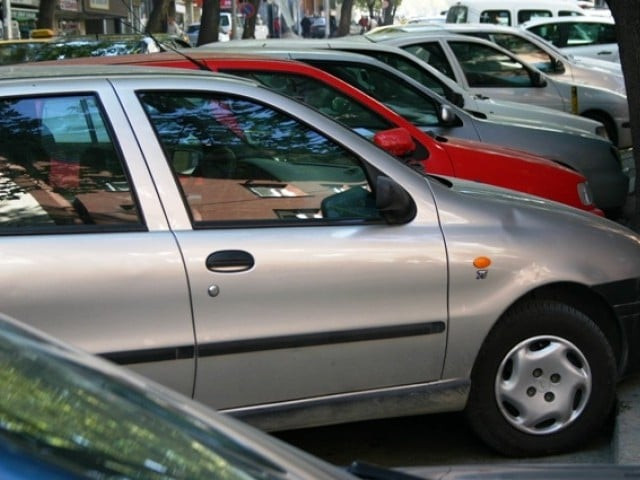Automakers may suffer due to Euro-5 switch
SBP says move to new emission standards expected to affect refineries, auto sector in short to medium term

Most of the automobile manufacturers and petroleum refineries are set to land in serious trouble in the wake of government’s introduction of improved quality Euro-5 diesel to control air pollution and improve the quality of life.
Earlier, the government made it mandatory to switch over to Euro-5 standard fuel - the ultra-low sulphur diesel containing a maximum of 50 parts per million - by January 2021, replacing the Euro-2 diesel, which had been in the market since 2008.
Many developed economies have either already switched over to the Euro-6 standard or are in the process of doing so.
“The decision by the government to move to a new emission standard is expected to affect domestic automobile and crude oil refining industries in the short- to medium-term, whereas in the long-term the measure will improve urban air quality and modernise these industries,” the central bank said in its latest report titled “The State of Pakistan’s Economy” released on Tuesday.
Air pollution accounted for 9% of deaths in Pakistan in 2017, the State Bank of Pakistan (SBP) said, quoting the World Health Organisation (WHO). Moreover, according to IQAir, Pakistan was one of the most polluted countries in the world in 2019.
“The implications of this measure (introduction of Euro-5 diesel) on the automobile industry in Pakistan are straightforward. The assemblers would be required to install specialised equipment to meet the emission standards….Equipping domestic cars with Euro-5 compliant parts is likely to increase the cost and, subsequently, the retail price of the vehicles.”
Another potential bottleneck is the rerouting of imports away from non-compliant countries such as Thailand and Indonesia and towards compliant countries like Japan (Euro-6 equivalent), which may further escalate costs, it said, adding “Thailand and Indonesia, still following Euro-4, account for around 40% of Pakistan’s CKD (unassembled) vehicle imports.”
The impact on the petroleum refining industry is expected to be more acute. “The largely outdated petroleum industry was already feeling the strain in the face of an earlier measure that had curtailed demand for high sulphur furnace oil (HSFO), which made up around a quarter of the industry’s output. The latest regulatory decision to move to Euro-5 compliant fuel would make their task even more daunting, further necessitating the need to upgrade.”
“It will also be a massive financial undertaking. For instance, the planned upgrade of the 47,000-barrel-per-day (bpd) plant of Pakistan Refinery Limited to produce Euro-2 compliant fuel is expected to cost around $1 billion. Compliance with Euro-5 can possibly cost even more,” the central bank said.
Only one petroleum oil refinery out of the total five in Pakistan has so far upgraded to Euro-5 technology. Remaining four are still producing Euro-2 diesel.
Earlier in August 2020, the government decided to impose penalties on the refineries failing to meet the Euro-5 standard. The industry, however, opposed the move, saying the decision lacked legal grounds.
Pakistan meets 30-40% of diesel demand through imports. The rest of the demand is met through production by domestic refineries. Pakistan imported the first Euro-5 cargo in late December and the second in early January, it was learnt.
On the flip side, the SBP added, for a developing country coping with high public and foreign debt, the challenges to the implementation of standards are substantial given the lack of resources.
“In particular, the lack of institutional capacity can hamper efforts of the state for a trouble-free convergence to Euro-5 standards. Necessary incentives can be provided to the automobile and the petroleum industry for a smooth transition.”
Pakistan can learn from the experiences of other countries that have made that transition. For instance, a differential tax structure was imposed at pumps in Hong Kong, the United Kingdom and Germany.
Meanwhile, the United States and Japan allowed tax incentives to the refiners and, in some regions, also provided direct subsidies.
Another option is to give tax breaks to the refineries and auto assemblers that comply with new standards. A well-managed switchover may spur investment, create employment and build capacity in both the industries.
(Un)employment during Covid-19
Pakistan welcomes on an average 1.3 million new entrants in the job market every year, with the total workforce reaching around 60 million before the Covid-19 outbreak in February in the country.
During the initial phase of lockdowns, 10% of industrial workers lost their jobs in Pakistan. A gradual ease in restrictions in the following months allowed some recovery, “however, the industrial labour market had been unable to regain its pre-Covid level by end-August 2020,” the central bank said.
Job losses were more noticeable in sugar and leather industries. Compared to February 2020 levels, 23.5% of the workers lost their jobs during the lockdown period in the sugar industry. Even after the lockdown was lifted, the sugar industry continued to post job losses.
The leather industry also saw employment levels drop during the lockdown period. However, unlike sugar, jobs in the leather industry started inching up in the post-lockdown scenario.
As the restrictions were gradually eased, a few industries started hiring more workers. For instance, job opportunities in cement and textile industries rose above the pre-Covid levels by August 2020.
The construction wage rate index also depicted growth during Jul-Sept FY21. Unskilled labour wage grew by 7.4% and 6.6% in rural and urban areas respectively during Jul-Sep FY21. Similarly, in the skilled labour category, growth of 9.8% and 6.4% was recorded in the rural and urban regions respectively.
Published in The Express Tribune, January 7th, 2021.
Like Business on Facebook, follow @TribuneBiz on Twitter to stay informed and join in the conversation.


1733130350-0/Untitled-design-(76)1733130350-0-208x130.webp)
















COMMENTS
Comments are moderated and generally will be posted if they are on-topic and not abusive.
For more information, please see our Comments FAQ